Login Status
-
Free text
UPCOMING EVENTS:
 From August 18 to October 11, 2026; submissions due February 19.
From August 18 to October 11, 2026; submissions due February 19.FILE – Electronic Language International Festival is now accepting project submissions and invites artists, researchers, creators, and developers to participate in its next edition. An international reference in the fields of art, technology, and innovation, FILE will take place in … Continue reading →
 Wrocław University of Environmental and Life Sciences, 4th of Match 2026
Wrocław University of Environmental and Life Sciences, 4th of Match 2026The international conference “Cross-border cooperation in the era of challenges and transformation – space, energy, climate, culture” will be held on 4 March 2026 at the Wrocław University of Environmental and Life Sciences, in Wrocław, Poland. The conference will explore key issues facing border regions, from … Continue reading →
Author Archives: admin
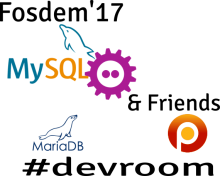
FOSDEM is a two-day event organised by volunteers to promote the widespread use of free and open source software. Every year, thousands of developers of free and open source software from all over the world gather at the event. Taking place in the beautiful city of Brussels (Belgium), FOSDEM is widely recognised as the best such conference in Europe. FOSDEM 2017 will take place at ULB Campus Solbosch on Saturday 4 and Sunday 5 February 2017. Continue reading
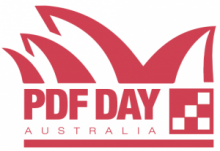
The PDF Association will feature veraPDF at their next event in Australia. This event, which will be held in Sydney’s central business district, brings policy makers, ISO committee members and electronic document and accessibility professionals together to discuss the significance of ISO standards for PDF as well as the technology and solutions available to business users of PDF documents. Continue reading
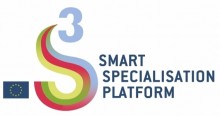
The PREFORMA project has been invited by the Smart Specialisation Platform of the European Commission to participate as an expert in their next S3 event on Smart Specialisation and Cultural Heritage that will be held in Rome on 25 November 2016. The workshop will be devoted to innovation in the field of Cultural Heritage and the main objective is to present effective ways to manage pre-commercial public procurement in this field. Continue reading
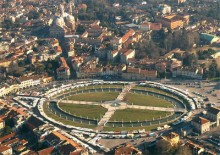
The University of Padova hosts the kick-off meeting of a new Pre-Commercial Procurement project co-funded by the European Commission, under its FP7-ICT Programme. The main objective of PREFORMA is to give memory institutions full control of the process of the conformity tests of files to be ingested into archives. Continue reading
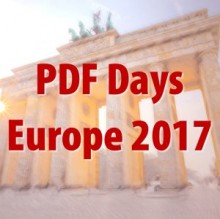
After the success of the 2016 edition, with over 150 attendees from all over the world and over 50 presentations, the PDF Days Europe 2017 will be held in Berlin again, giving visitors plenty of opportunity to learn about the applications and benefits of PDF, PDF/A, PDF/UA and more. Across two days, you’ll be able to choose from German- and English- language presentations, user reports and workshops in order to assemble your own personal package of PDF knowledge. Continue reading

The IS&T Archiving Conference brings together an international community of imaging experts and technicians as well as curators, managers, and researchers from libraries, archives, museums, records management repositories, information technology institutions, and commercial enterprises to explore and discuss the field of digitization of cultural heritage and archiving. Continue reading

The Reel Thing addresses current thinking and most advanced practical examples of progress in the field of preservation, restoration and media conservation. A special 40th edition of the ongoing technical symposium will take place in Amsterdam on May 28-30, 2017, in conjunction with the EYE International Conference 2017. The event, organised in cooperation with with EYE Filmmuseum Amsterdam and the Association of Moving Image Archivists, will focus on the wide range of critical issues facing archivists, technicians, asset managers and curators of image and sound in the current media/digital landscape. Continue reading
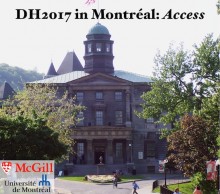
Co-organised by McGill University and the Université de Montréal, Digital Humanities 2017 (DH2017) will take place August 8-11, 2017 in downtown Montréal, Canada on the campus of McGill University. This is the premiere annual conference of the international Alliance of Digital Humanities Organizations (ADHO). The theme of DH2017 is “Access/Accès”. Continue reading
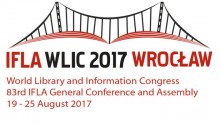
The IFLA World Library and Information Congress is the international flagship professional and trade event for the library and information services sector. It brings together over 3,500 participants from more than 120 countries, sets the international agenda for the profession and offers opportunities for networking and professional development to all delegates. The 83rd World Library and Information Congress, entitled ‘Libraries. Solidarity. Society’ will take place in Wrocław, Poland, from 19-25 August 2017. Continue reading
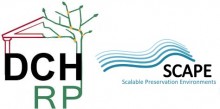
DCH-RP and SCAPE started to discuss possible synergies and cooperation strategies to find concrete actions to be performed together to promote a common infrastructure for the digital preservation of cultural data Continue reading
































